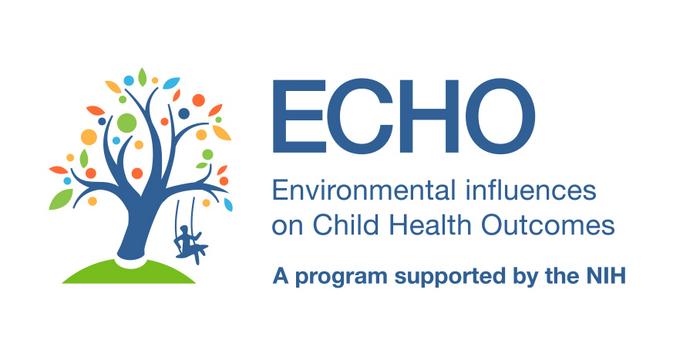Emerging research from the Environmental influences on Child Health Outcomes (ECHO) Program at the National Institutes of Health (NIH) sheds compelling light on the intricate relationship between maternal cardiometabolic health and the long-term cardiovascular outcomes in offspring. This extensive observational study meticulously examined how maternal conditions present before and during pregnancy, including obesity, gestational diabetes, and hypertensive disorders, are intricately linked to elevated blood pressure trajectories in children from early childhood through late adolescence. The findings underscore a critical biological and public health concern, highlighting the intergenerational transmission of cardiovascular risk factors and opening avenues for early intervention strategies.
It is well-established in medical literature that pediatric hypertension often persists into adulthood, significantly increasing the risk for cardiovascular morbidity and mortality. Yet, the precise prenatal contributors to this phenomenon have remained less clear until now. By leveraging data from 12,480 mother-child dyads within the ECHO cohort, researchers were able to dissect the individual and combined effects of maternal cardiometabolic risk factors on offspring blood pressure measurements taken periodically from ages 2 to 18 years. This large sample size and longitudinal design contribute robust evidence to the developmental origins of health and disease (DOHaD) paradigm.
The prevalence of maternal cardiometabolic risk factors in the cohort was notable, with 44% of mothers exhibiting at least one pre-pregnancy or pregnancy-related condition. These include obesity, gestational diabetes mellitus (GDM), and elevated blood pressure states, conditions known to affect metabolic homeostasis and vascular function. The study highlights that offspring born to mothers with multiple concurrent cardiometabolic pathologies displayed significantly higher systolic and diastolic blood pressures compared to children whose mothers had single or no such conditions. This synergistic effect suggests that the cumulative burden of metabolic and vascular insults during gestation potently programs the offspring’s cardiovascular system toward maladaptive outcomes.
Intriguingly, the study found sex- and race/ethnicity-specific effects in blood pressure trajectories. Diastolic blood pressure elevations were particularly pronounced in female offspring, while systolic blood pressure increases were most marked among non-Hispanic Black children born to mothers with gestational diabetes or hypertension. These disparities add a layer of complexity, implying that genetic, hormonal, and social determinants intersect with prenatal exposures to modulate cardiovascular risk. This necessitates tailored public health strategies and further mechanistic research to unravel these differential vulnerabilities.
The implications of these findings extend beyond the individual, raising critical concerns about population health dynamics in the context of rising obesity and diabetes prevalence globally. The intergenerational propagation of cardiometabolic disorders threatens to exacerbate the burden of hypertension-related complications such as stroke, myocardial infarction, and chronic kidney disease. By identifying pregnancy as a pivotal period for intervention, this study advocates for early screening, optimized maternal metabolic control, and comprehensive prenatal care to mitigate offspring cardiovascular risk.
ECHO investigator Zhongzheng Niu, PhD, emphasizes that the decline in cardiometabolic health trends necessitates proactive prevention starting before conception. Enhancing maternal health not only improves pregnancy outcomes but may disrupt the cycle of inherited cardiometabolic risk, thus benefiting multiple generations. Furthermore, this work highlights the urgency of integrating social determinants and structural factors, such as access to healthcare, nutrition, and socioeconomic status, which interplay with biological risks to influence child health.
This nuanced understanding of maternal-offspring cardiovascular health is poised to inform both clinical practice and public health policy. Prenatal care paradigms may evolve to include targeted metabolic assessments, personalized lifestyle interventions, and robust monitoring of at-risk pregnancies. Simultaneously, public health initiatives aimed at curbing obesity and diabetes epidemics must incorporate reproductive-age women as a priority group for comprehensive health promotion.
While this study establishes a strong associative framework, the authors call for further research exploring the molecular pathways linking maternal metabolic derangements to offspring vascular remodeling. Longitudinal investigations incorporating epigenomic profiling, placental function assessments, and environmental exposures will be instrumental in dissecting causality. Moreover, intervention trials assessing the efficacy of preconception and antenatal metabolic optimization on child cardiovascular outcomes are critical next steps.
The broader scientific and medical communities stand to gain from these findings, which reinforce the concept that health across the lifespan is profoundly influenced by early developmental exposures. The ECHO Program’s contribution exemplifies the power of large-scale, multidisciplinary research consortia in addressing complex health challenges and generating actionable insights.
By enhancing our understanding of how maternal cardiometabolic health programs offspring blood pressure regulation, this research opens a promising avenue for reducing the lifetime burden of cardiovascular disease. It stands as a clarion call to prioritize maternal health as a cornerstone of preventive medicine, thereby safeguarding the health trajectories of future generations.
Subject of Research: People
Article Title: Maternal Cardiometabolic Risk Factors in Pregnancy and Offspring Blood Pressure at Age 2-18 Years
News Publication Date: 8-May-2025
Web References:
https://echochildren.org/research-summaries/obesity-diabetes-high-blood-pressure-before-and-during-pregnancy-are-associated-with-higher-blood-pressure-in-children/
https://jamanetwork.com/journals/jamanetworkopen/fullarticle/10.1001/jamanetworkopen.2025.9205?utm_source=For_The_Media&utm_medium=referral&utm_campaign=ftm_links&utm_term=050825
References:
Niu, Z. Maternal Cardiometabolic Risk Factors in Pregnancy and Offspring Blood Pressure at Age 2-18 Years. JAMA Network Open, DOI: 10.1001/jamanetworkopen.2025.9205
Image Credits: Environmental influences on Child Health Outcomes (ECHO) Program/NIH
Keywords: Metabolic disorders, Pregnancy, Pulmonary hypertension, Obesity, Diabetes
Tags: developmental origins of health and diseaseearly intervention strategies for hypertensionECHO program research findingselevated blood pressure in childrengestational diabetes effectshypertensive disorders in pregnancyintergenerational cardiovascular risklong-term health outcomes for offspringmaternal cardiometabolic healthmaternal health and child wellbeingobesity and pregnancypediatric hypertension persistence





